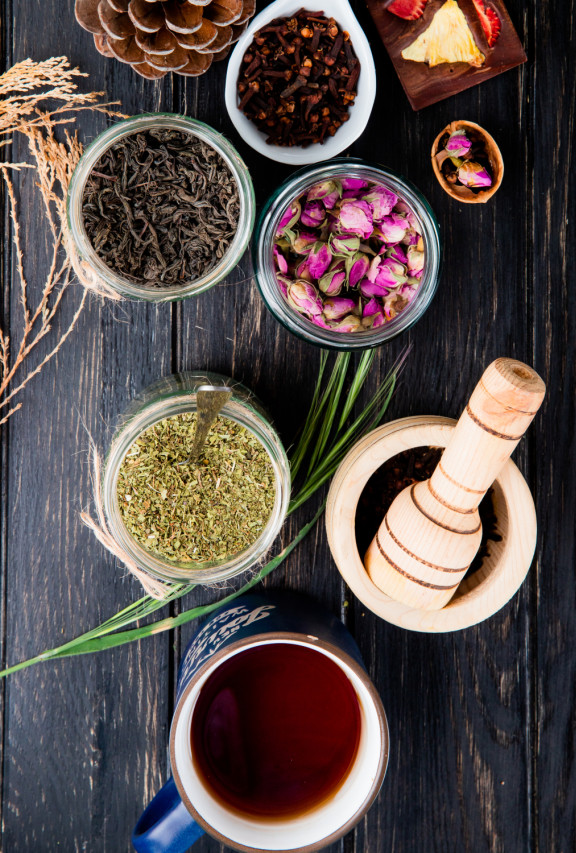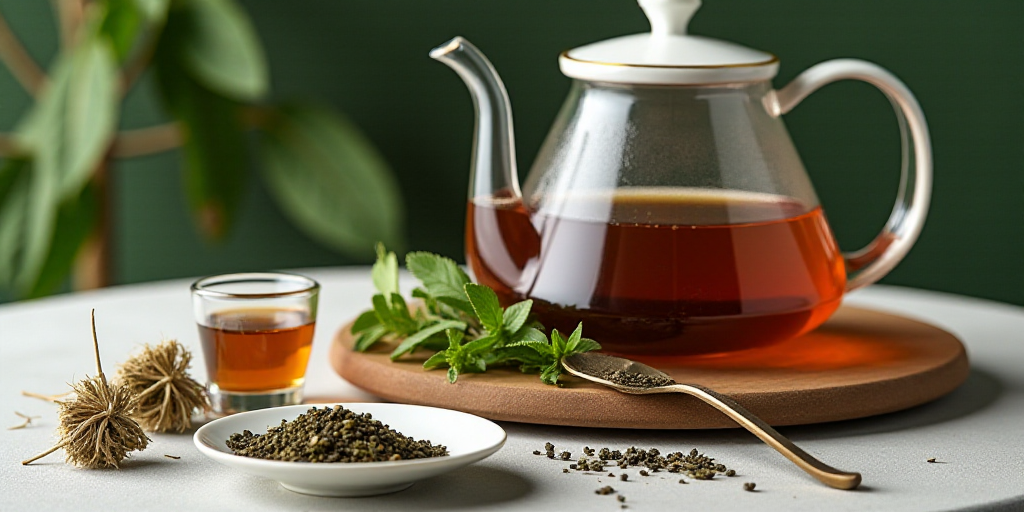On May 21, the International Tea Day is celebrated, a date promoted by the FAO since 2019 to recognize the cultural, economic, and medicinal importance of this ancient beverage. While “tea” technically refers only to infusions from the Camellia sinensis plant, in Mexico and Latin America, we use the term for a wide variety of herbal teas, many linked to traditional medicine.
Those that do help:
Chamomile: A classic, it contains apigenin, a compound that binds to brain receptors inducing sleepiness. Ideal for those with mild insomnia or digestive issues.
Linden: Originating from the linden tree, it’s widely used in Mexico. It reduces muscle and emotional tension while calming the nervous system without causing abrupt sleepiness.
Lavender: Its therapeutic aroma has a gentle sedative effect. It pairs well with other herbs like chamomile or lemon balm.
Lemon Balm (Melissa): It’s attributed with anxiolytic properties. It balances mood, reduces cortisol, and improves sleep quality.

Infusiones y tés
Passionflower: A powerful natural sedative. Its traditional use is for people with severe anxiety or persistent insomnia.
Valerian: With a stronger effect. It’s ideal for those with chronic sleep disorders, though it may cause daytime drowsiness if taken in excess.
Orange Blossom: Gently relaxing, emotionally comforting. It helps in cases of insomnia caused by nerves or sadness.
And the one to avoid:
Green Tea. Although many consider it healthy, it contains caffeine and L-theanine, which stimulate the mind. It’s better to consume it in the morning or at noon, never before bedtime.
Key Questions and Answers
- What is the International Tea Day? Celebrated on May 21, it recognizes the cultural, economic, and medicinal importance of tea. Promoted by the FAO since 2019.
- What are some teas that help with sleep?
- Chamomile: Ideal for mild insomnia or digestive issues.
- Linden: Reduces muscle and emotional tension while calming the nervous system.
- Lavender: Gentle sedative effect, pairs well with other herbs.
- Lemon Balm: Anxiolytic properties, balances mood and improves sleep quality.
- Passionflower: Powerful natural sedative for severe anxiety or persistent insomnia.
- Valerian: Strong effect for chronic sleep disorders, but may cause daytime drowsiness if taken in excess.
- Orange Blossom: Gently relaxing, emotionally comforting for insomnia caused by nerves or sadness.
- Which tea should I avoid before bedtime? Green Tea, as it contains caffeine and L-theanine that stimulate the mind. It’s better to consume it in the morning or at noon.






